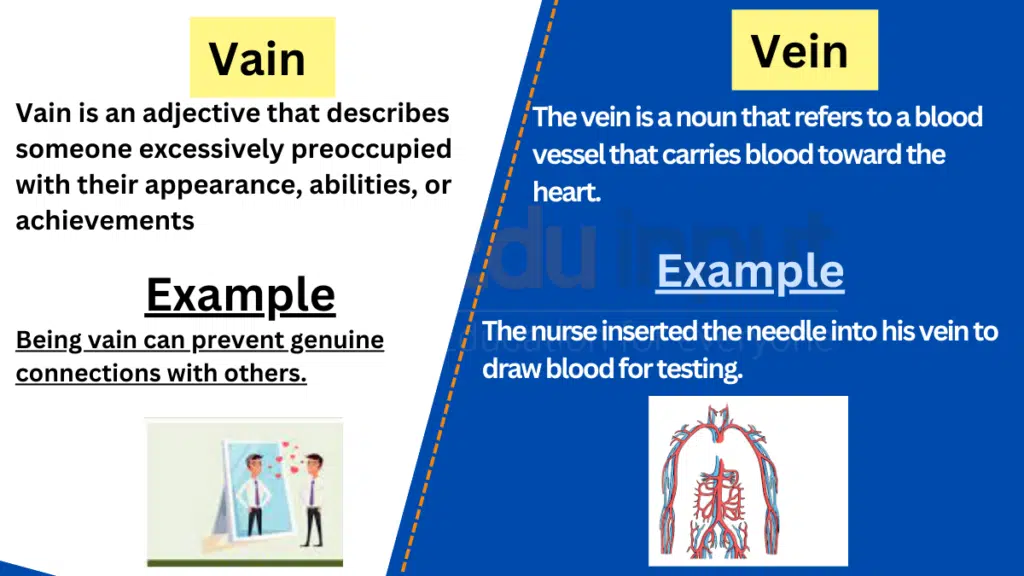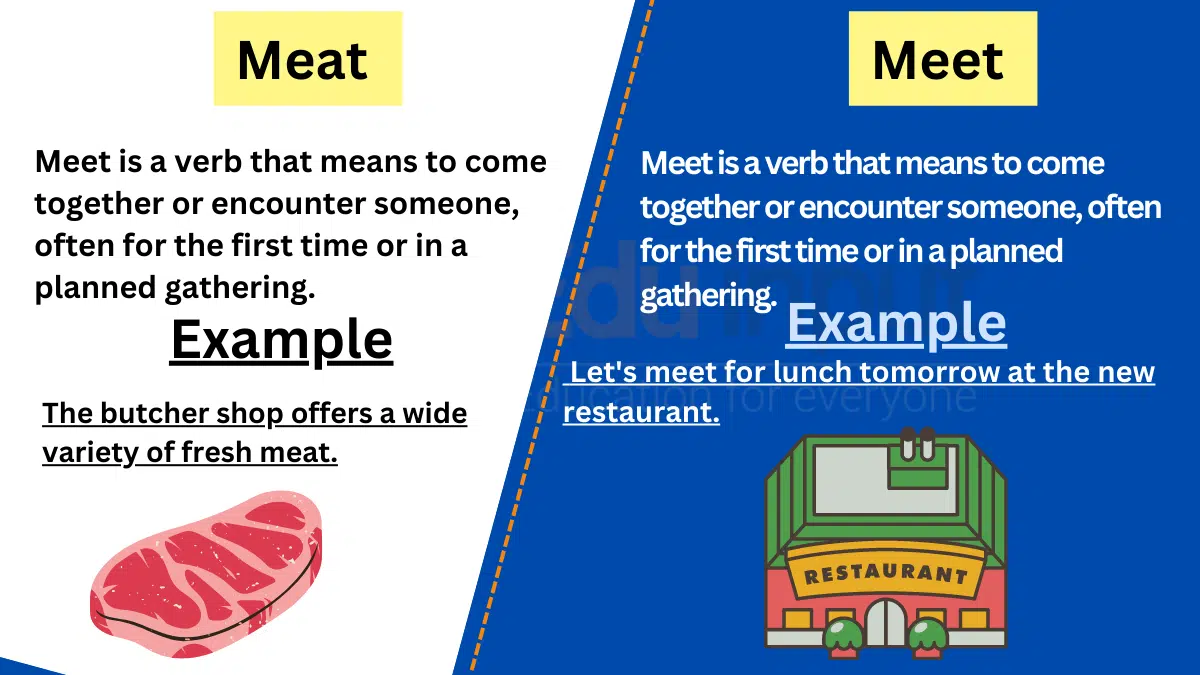Vain and Vein-Difference between and Examples
In English, certain words may sound similar but have distinct meanings and contexts. One such pair is “vain” and “vein.” While these words may appear similar, they have different definitions and usage. This article aims to clarify the difference between “vain” and “vein,” providing examples and explanations to help readers understand their proper usage. By discerning the nuances between these terms, individuals can effectively express their intended meaning and avoid misunderstandings. Let’s delve into the meanings and uses of “vain” and “vein” in English.

Meanings and Examples
Vain meaning
Vain is an adjective that describes someone excessively preoccupied with their appearance, abilities, or achievements. It refers to a person who has an inflated sense of self-importance and seeks excessive admiration from others.
Vain Examples
a) She is so vain that she spends hours in front of the mirror, admiring herself.
b) His vain attempts to impress others often lead to disappointment.
c) Being vain can prevent genuine connections with others.
Vein meaning
The vein is a noun that refers to a blood vessel that carries blood toward the heart. It is part of the circulatory system and is responsible for delivering oxygen and nutrients to various parts of the body.
Vein Examples
a) The nurse inserted the needle into his vein to draw blood for testing.
b) Blue veins were visible on her pale skin.
c) A blocked vein can cause circulatory problems.
Difference between Vain and Vein
| Vain | Vein | |
| Meaning | Adjective: excessively preoccupied with appearance or achievements | Noun: a blood vessel that carries blood toward the heart |
| Example | “She is so vain that she spends hours in front of the mirror.” | “The nurse inserted the needle into his vein to draw blood.” |
| Usage | Self-importance, excessive admiration, appearance | Circulatory system, blood flow, oxygen, and nutrient transportation |
| Context | Narcissism, self-centeredness, vanity | Anatomy, medical procedures, cardiovascular health |
Usage in a Paragraph
The adjective “vain” is used to describe someone who is excessively preoccupied with their appearance, abilities, or achievements. A vain person tends to have an inflated sense of self-importance and seeks constant admiration from others. They may invest considerable time and effort in maintaining their appearance, often at the expense of genuine connections and personal growth. Vanity is associated with traits such as narcissism, self-centeredness, and a superficial focus on external validation.
In contrast, the noun “vein” refers to a blood vessel that carries blood towards the heart. Veins are an essential part of the circulatory system, responsible for delivering oxygen and nutrients to various parts of the body. They are visible beneath the skin, with different individuals exhibiting varying levels of vein prominence. Veins play a crucial role in medical procedures, such as blood draws and intravenous therapies. Understanding the structure and function of veins is vital for maintaining cardiovascular health.
In conclusion, “vain” and “vein” may sound similar but have distinct meanings and usage. “Vain” describes someone excessively preoccupied with their appearance, abilities, or achievements, emphasizing self-importance and a desire for admiration. It is used in discussions related to narcissism, self-centeredness, and the pursuit of external validation. On the other hand, “vein” refers to a blood vessel that carries blood toward the heart, highlighting its role in the circulatory system and the transportation of oxygen and nutrients throughout the body. By understanding the differences between “vain” and “vein,” individuals can communicate effectively, ensuring their intended meaning is conveyed accurately.






Leave a Reply